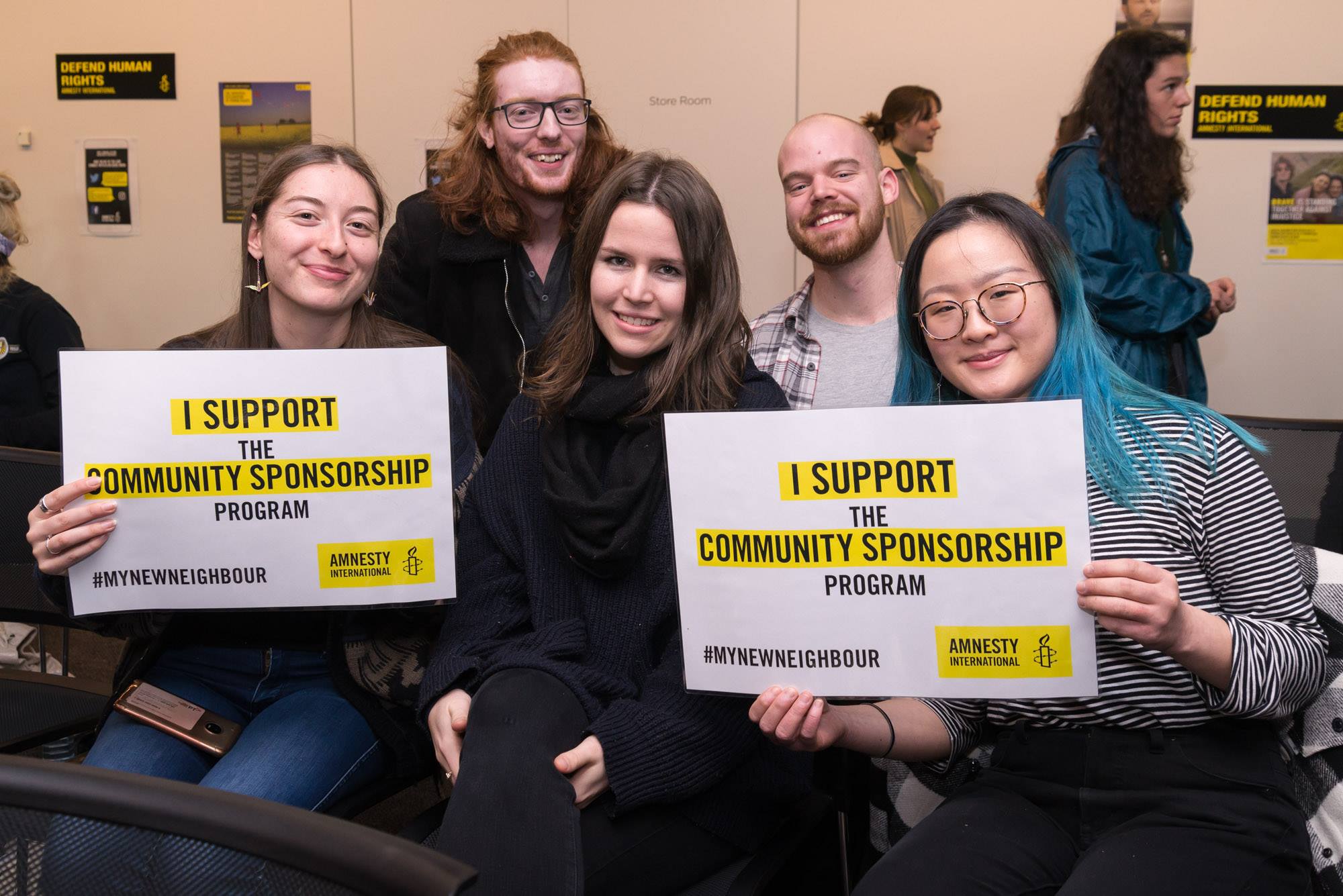Community organising at AIA is about building power, it is about empowering people to be able to take the lead and make change in their own communities. It’s about investing in people and giving them the tools they need so that they can stand up for the human rights issues they are most passionate about. In 2018 our organising program has developed leaders, grown groups, and mobilised activists to take action and that’s just the tip of the snowflake.
Here is just a snapshot of the impact on our campaigns:
Deep organising through the My New Neighbour Campaign
We have built an impressive group of refugee campaign leads, with representatives from nearly every state who have developed their own regional plans and built support for community sponsorship through the My New Neighbour campaign. The results speak for themselves with 23 councils standing with refugees through formal motions and just this week at the ALP formally endorsing an expanded Community Sponsorship Program at the National Labor Conference.
Tasmanian activists have really got behind the My New Neighbour campaign, with deep organising that has seen relationships and partnerships being built with schools, sporting groups and local media. The impacts of this work will build the spirit of welcome in communities and change hearts and minds into the future.
At its heart the My New Neighbour campaign is about grassroots activism, it’s about giving power back to communities and working with them to build a fairer system for refugees. This couldn’t be better encapsulated than in the work of regional activists. After launching the campaign in Wagga Wagga in March, activists from regional NSW shared the campaign and its message of empowerment with other regional communities across Australia at the Rural Australians for Refugees national conference in Wodonga.
Mobilisation through the Write for Rights Campaign
A key element of community organising is strategic mobilisation. Victorian activists have been gathering record numbers of actions for the Write for Rights campaign this year. Events and Social Media volunteer MJ even managed to secure a spot on 3RRR radio to promote their Write for Rights marathon, where they ended up gathering 765 actions!
Crisis Response through the Rohingya campaign
We can’t always plan ahead for human rights issues, when crises happen we need to be ready to take action, and make sure we get the attention of those in power. South Australian activists certainly did this when they gathered out the front of the Minister of Defence’s office to hand over the Rohingya crisis campaign petitions. Activists from the Ministers’ federal electorate of Sturt presented the blood money petitions in large money bags covered in fake blood to a member of Minister Pyne’s team. The stunt got the attention of politicians and media alike, helping to raise the profile of this important campaign.

Leadership development
Developing a strong distributed leadership network is another key feature of an effective community organising strategy. In June activist leaders from around the country came together in Sydney to share skills and strategies. Some of the key focuses for the weekend were strategic thinking, effective facilitation and youth engagement. But most importantly these activist leaders went back to their home States ready to empower and develop their fellow activists.
In Victoria the Leadership Network has been connecting Victorian activist leaders to share plans and support each other’s projects. The network supports skill and time sharing to ensure all projects and events go ahead and are well supported.
In WA, activist leader Rachel used the skills she developed at the Activist Leadership Weekend to put on a major music and arts festival “Beats for Bravery”. Through this event she was able to work with a team of fellow activists, helping them to develop their skills, while bringing in big action numbers for the Write for Rights campaign.

Youth Engagement
At its heart, community organising is about ensuring that all members of our communities feel empowered by their citizenship. It’s therefore vital that we share this experience fully with young people, to ensure they understand the power they possess in their communities. Queensland, South Australia and New South Wales all hosted youth conferences this year, bringing together young people who are passionate about making change for human rights.
Amnesty activists are powerful. They are an unbreakable network of leaders, speaking truth to power and holding nothing back.
Frankly, we can’t wait to see what you do in 2019.
